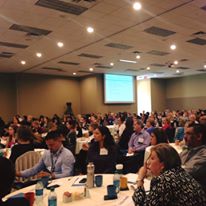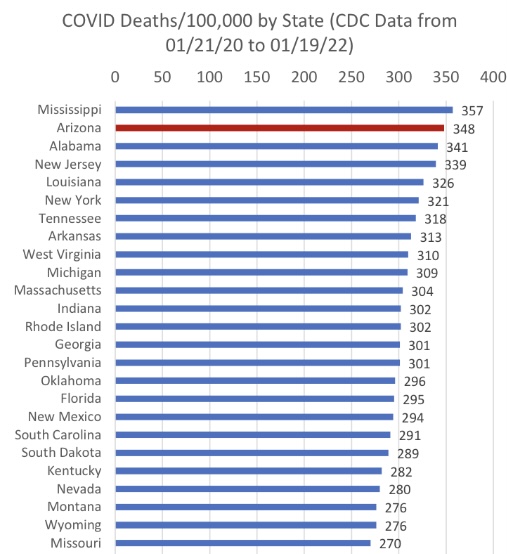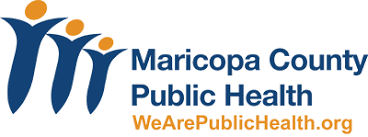Our Public Health Policy Committee has taken our first look at the bills that have been proposed so far and taken positions on about 35 of them. Just a few of them have been heard in their committees so far. We will continue to track and evaluate our positions on them as they go through the system and get amended.
We will likely add new bills to our track list, and as bills languish or die, we will refine the list to focus on our A-list items. I’ll be down at the Senate Appropriations committee this week for sure, and maybe a couple others.
Public Health Emergency
SB1009 – state of emergency; executive powers OPPOSED but evaluating
Beginning on the first day of the next governor’s term, this new law would cap the length of a Governor’s public health emergency declaration at 30 days but allows the Governor to extend the state of emergency for up to 120 days in 30-day increments. Terminates a state of emergency after 120 days, unless extended by the Legislature. Allows the Legislature to extend the state of emergency as many times as necessary in up to 30-day increments.
HB2022 health emergencies; treatment; vaccinations; repeal OPPOSED
This bill eliminates public health emergency authority that currently allows the ADHS Director to mandate vaccinations in exposed persons in some circumstances
Vaccines
HB2029 vaccinations; evidence of immunity; prohibitions OPPOSED
Prohibits government entities from requiring a COVID vaccine as a condition of employment. Also prohibits them from contracting with any private business that requires vaccination. Has an conditional exemption for healthcare institutions.
HB2043 employer liability; COVID-19 vaccine requirement OPPOSED
Makes employers liable for damages if the employer denies a religious exemption and requires a person to receive a COVID-19 vaccination and significant injury results from receiving the vaccine.
HB2064 DHS; school immunizations; exclusions. OPPOSED
Prevents ADHS Director from ever adding COVID19 or HPV vaccines to the list required for school attendance
HB2065 school immunizations; nonattendance; outbreak OPPOSED
Removes that ability to exclude unvaccinated students from school during a school outbreak
HB2086 DHS; school immunizations; exclusions OPPOSED
Prevents ADHS Director from ever adding COVID19 or HPV vaccines to the list required for school attendance
HB2191 – school immunizations; DHS; exclusions OPPOSE
Prohibits ADHS from adding HPV, COVID-19 or anu vaccine that is just emergency use authorized to list of vaccines required for school attendance.
HB2452 – antidiscrimination; employment; vaccination status OPPOSED
Prevents ‘discrimination’ against anybody because of the vaccination status
Family Planning
SB1044 contracts; grants; exclusions; sex education OPPOSED
Prohibits ADHS from contracting with any entity that ‘provides or promotes abortion’ on their Personal Responsibility Education Program (PREP) or the Sexual Risk Avoidance Education Grant Program (SRAE) grants. Adds Title X (if ADHS ever applies for that again).
Criminal Justice
HB2033 juvenile offenders; monetary sanctions; repeal SUPPORT
Removes statute relating to court-ordered fees and fines for juveniles, except for victim restitution and specific driving under the influence offenses. Appropriates $2,531,000 from the state General Fund for costs relating to juvenile treatment services and court services.
Food Insecurity
HB2060 – supplemental nutrition assistance program; eligibility SUPPORT
Expands Supplemental Nutrition Assistance Program (SNAP) eligibility to individuals with felony drug convictions. Requires specified individuals who are eligible for SNAP to comply with probation conditions.
Housing
HB2606 – school districts; housing facilities; teachers SUPPORT
permits all school districts to leverage district-owned property and facilities toward the development of housing for staff. Current statute limits these “teacherages” to rural and tribal communities. This bill would expand these abilities to urban and suburban districts. It’s a technical change to existing statute, but should have promising health, educational and economic impacts.
Maternal and Child Health
HB2111 appropriation; healthy families program SUPPORT
Appropriates $10 million from the state General Fund in FY 2023 to the Department of Child Safety for the Healthy Families Program.
HB2113 developmental disabilities; Down syndrome SUPPORT
Automatically qualifies persons with Down Syndrome for AHCCCS’ Long Term Care program (they currently need to go through a qualification process).
HB2311 – school health program; appropriation SUPPORT
Requires school districts (and charters) to have evidence-based school health programs. Provides funding for such programs.
Tobacco
HB2125 electronic smoking devices; retail licensing SUPPORT
This is the ‘good’ tobacco control bill. Has a host of evidence based interventions including retail licensing with proper enforcement.
SB1245 tobacco; vapor; alternative nicotine; regulation OPPOSED
Regulates tobacco products but in a bad way that isn’t evidence based. It preempts local jurisdictions from doing more than state law. Includes a tobacco license though, with weak enforcement. Would be managed by the LLC.
Access to Care
HB2144 – health insurance coverage; biomarker testing SUPPORT
Requires health insurance plans to begin covering biomarker testing. Important bill as emerging therapies rely on biomarker testing to target therapies. Medicaid is included!
HB2155 – health information organizations; research; disclosures SUPPORT
Makes deidentified health information more available for research.
HB2161 parental rights; schools; educational records OPPOSE
Expands statutory parental rights regarding the upbringing, education, health care and mental health of a parent’s minor child.
Special Needs & Disabilities
HB2382 – appropriation; health programs; disabilities SUPPORT
Appropriates $1 million to ADHS for grants to statewide organizations dedicated to “promoting evidence based, inclusive health programs for people with intellectual and developmental disabilities”.
HB2157 supplemental appropriations; community-based services SUPPORT
(Cleared House Appropriations 11-1) Appropriates $1,440,732,800 of expenditure authority and $30,121,100 from the Children’s Health Insurance Program (CHIP) Fund in FY 2022 for home and community-based services and funding formula requirements. This will leverage $1.5B in mostly American Rescue Plan Act funds over the next 2 years to improve Home and Community Based Services for folks in their Long-Term Care Program (ALTCS).
$1B will go for badly needed investments to promote and stabilize access to supportive services, and workforce retention/ consistency to improve member outcomes ($1B)
Clean Energy & Climate
SB1132 – municipal bonds; environmental; prohibition OPPOSED
Prohibits the use of municipal bonds for any project that is “green”. Defines anything green as basically anything to do with climate change, carbon emissions, or clean energy. Excludes other pollutants regulated by ADEQ.
HB2403– appropriation; ADE; electric school buses SUPPORT
Appropriates $1.5M for a pilot program for electric school buses
SB1150 electric vehicles; pilot program; appropriation SUPPORT
Appropriates $500K from the General Fund to the Arizona Department of Administration (ADOA) for the Electric Vehicle-Ready Homes Pilot Program.
SB1151 – charging station; pilot program; appropriation SUPPORT
Appropriates $500K from the General Fund to ADOA to establish the Electric Vehicle Charging Station Pilot Program.
SB1152 – zero emission vehicles; plans SUPPORT
Requires ADOT to work in coordination with ADOA and ADEQ to develop a Zero Emission Vehicle Plan.
SB1153 state zero emission vehicle fleet SUPPORT
Requires state agencies to buy zero emission vehicles when they buy new cars (when feasible).
SB1154 transportation electrification study committee SUPPORT
Establishes the Transportation Electrification Study Committee
Women’s Health
HB2534 diapers; feminine hygiene; exemption SUPPORT
Exempts feminine hygiene products from sales taxes.
SB1164 – abortion; gestational age; limit OPPOSE Thursday in judiciary
Except in a medical emergency, prohibits physicians from performing an abortion after 15 weeks gestation as measured starting on the 1st day of the last menstrual period. Punishes the doctor with a felony and unprofessional conduct on her or his license. No exemptions for rape etc.
SB1272 AHCCCS; postpartum care; eligibility; appropriations SUPPORT
(Being heard in Senate Appropriations 2/1/22) Allows AHCCCS to pursue eligibility for postpartum care for members for 1 year post-delivery up to 161% of federal poverty limit. Expanded eligibility currently ends at delivery. Still requires CMS approval.
Violence and Firearms
SB1123 disruption; educational institution; concealed weapon OPPOSED
Prohibits the governing board of any university, college, or community college from prohibiting the possession of a concealed weapon by a concealed weapon permit holder, or the transportation or storage of a firearm.
State Agency Administration
SB1175 – noncustodial federal monies; appropriation OPPOSE
The legislature would need to appropriate federal funds that come through grants- including for example the maternal and child health block grant, WIC, SNAP, and many others.
Behavioral Health
SB1210 mentally ill; transportation; evaluation; treatment SUPPORT
Stops the current practice of requiring that a police officer attend behavioral health ambulance transports.
SB1162 opioid prescriptions; intractable pain; exceptions Neutral but evaluating
Exempts patients with perioperative surgical pain, intractable pain or chronic intractable pain from statutory opioid prescription dosage restrictions.




